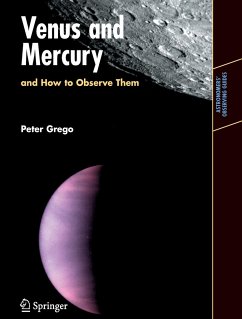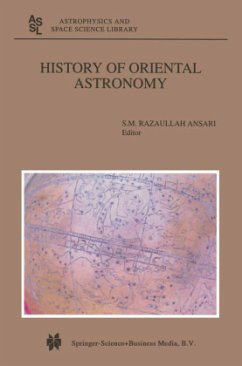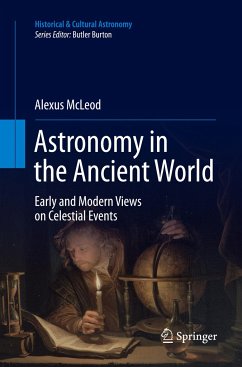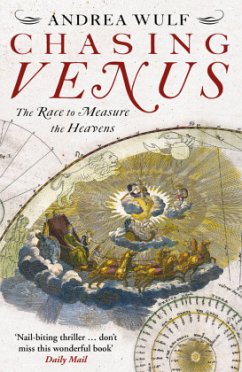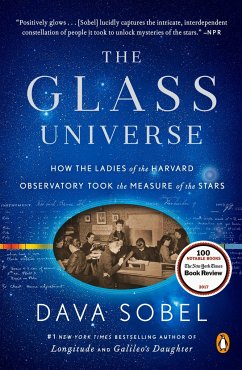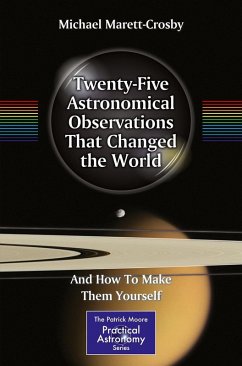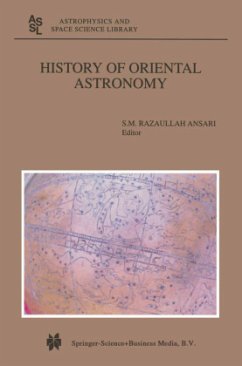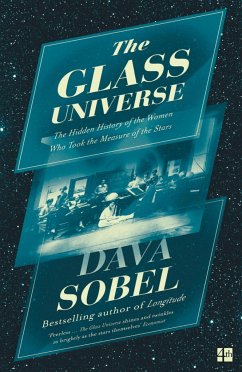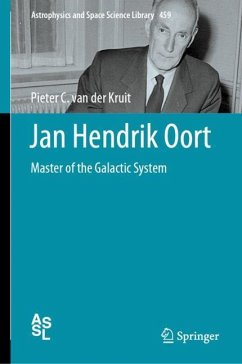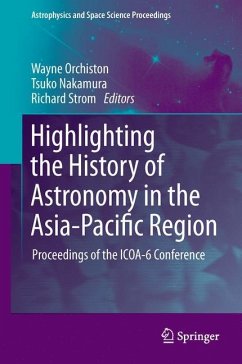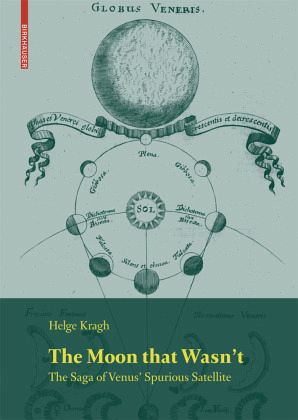
The Moon that Wasn't
The Saga of Venus' Spurious Satellite
Mitarbeit: Moeller Pedersen, Kurt

PAYBACK Punkte
0 °P sammeln!
The planet Venus is the closest neighbour to the Earth and in several respects similar to our globe. It revolves around the Sun at an average distance of 0. 72 astronomical units, in an elliptical orbit of eccentricity 0. 007. The corresponding 3 numbers for the Earth are 1 and 0. 017. The mean density of Venus is 5. 2 g/cm , 3 that of the Earth 5. 5 g/cm . Venus' acceleration of gravity at its equator is 8. 9 2 2 m/s , compared with 9. 8 m/s at the Earth. The escape velocity is 10. 4 km/s, while the corresponding ?gure of the Earth is 11. 2 km/s. Although the mass of Venus is somewhat smaller...
The planet Venus is the closest neighbour to the Earth and in several respects similar to our globe. It revolves around the Sun at an average distance of 0. 72 astronomical units, in an elliptical orbit of eccentricity 0. 007. The corresponding 3 numbers for the Earth are 1 and 0. 017. The mean density of Venus is 5. 2 g/cm , 3 that of the Earth 5. 5 g/cm . Venus' acceleration of gravity at its equator is 8. 9 2 2 m/s , compared with 9. 8 m/s at the Earth. The escape velocity is 10. 4 km/s, while the corresponding ?gure of the Earth is 11. 2 km/s. Although the mass of Venus is somewhat smaller than that of the Earth - the ratio is M /M =0. 815 V E - the diameters of the two planets are almost the same. In other words, Venus is indeed a sister planet of the Earth. In earlier times, when almost nothing was known about the physical con- tions of Venus, the similarity appeared even stronger than today. Not only was Venus' period of rotation thought to be close to that of the Earth, it wasalso p- sible (and indeed common) to imagine intelligent life on Venus.




